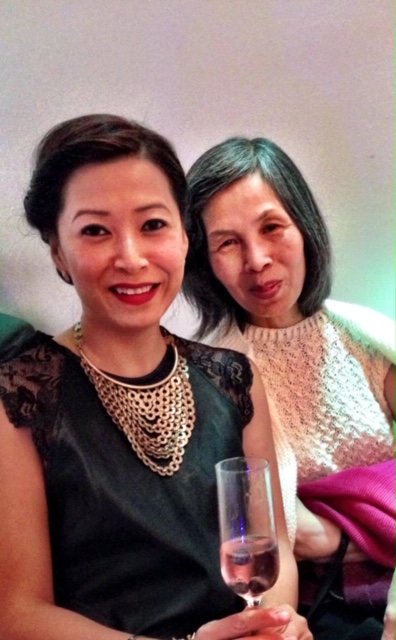
On this Mother’s Day weekend, we celebrate and honor mothers around the world. We acknowledge their impact on our lives, and we recognize that every mother is unique in how they approach motherhood.
Seven Asian-American women reflect upon their experiences, as they speak about differences between how their mothers raised them and how they are choosing to raise their own children.
Trinh Yawata: “I would say the biggest difference in how I’m raising my daughter versus how my mother raised me is communication. I think my mom grew up in a culture and generation where you were taught to listen and to keep quiet. Children didn’t have a voice. Children are taught to respect elders and not to question anything they say, even if you strongly disagree! As a teenager growing up in the US, I saw how my non-Asian American friends would openly disagree with their parents. They would have actual dialogues, arguments, confrontations, and at times even negotiations to reach a mutual understanding. While this was not our way growing up, I see the benefit to giving my daughter a voice to express her feelings, and to always feel like she can come to me about anything, even when she knows we won’t agree.”
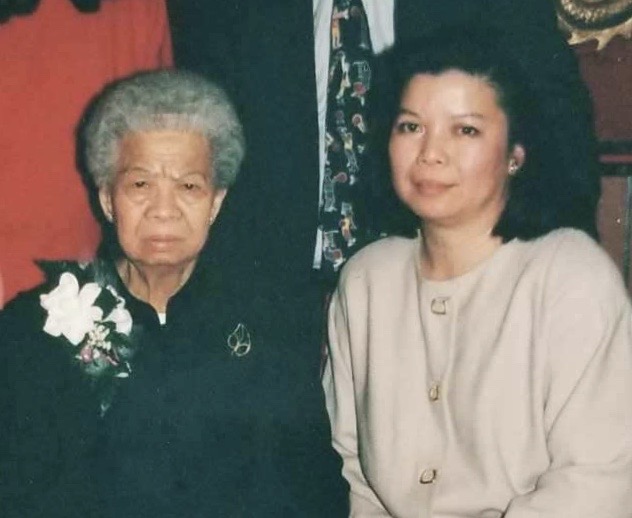
Lily Siddiqui: “My mom was loving and attentive, but she was also very busy working at the garment factory. As an immigrant who knew limited English, she never understood the educational system or ever attended parent-teacher conferences. There were few expectations and minimal pressure coming from my parents for me and my siblings, except to graduate and get a job. My mother still had the concept that a girl should have enough household skills, so she could get married. I remember that she didn’t really encourage higher education, but that it was up to me. There was no real guidance, and I wished there was more. That is probably one of the reasons that I was hard on my children and gave them a lot of guidance than I received from my own mom. I was harder on my daughter than my son because she was a girl. I wanted her to do and be better in this ‘man’s world.’”
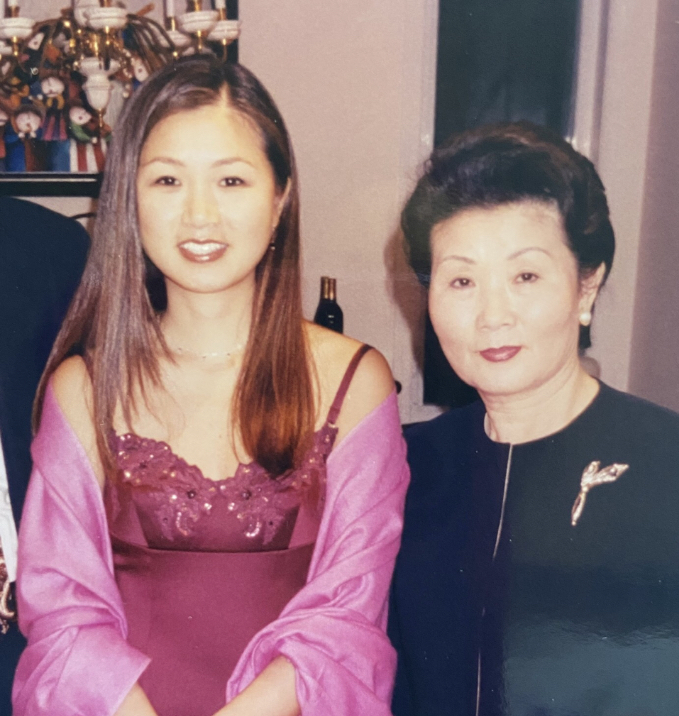
Mimi Park: “I think the biggest difference between the way my mom raised me versus the way I am raising my boys is that I am trying to be a less ‘serious’ parent. I think the Asian culture’s emphasis on respect for elders — parents, grandparents, teachers, friend’s parents — sometimes creates an image of seriousness. Being respectful to your elders may mean you act a certain way to reinforce their authority and your obedience. Although my mom was not the most strict mom by Asian standards, she also did not allow herself to be fun and silly with me and my brother. She was always a loving mom, but I don’t remember laughing, giggling, and moments of silliness from her. As I grew up and became an adult, our relationship changed; she became less serious and now we giggle and laugh together like silly teenagers! I think it’s important to teach children to respect and honor adults, but we need to let ourselves go and be fun and silly with our kids, too! We can all use laughter in our lives!”
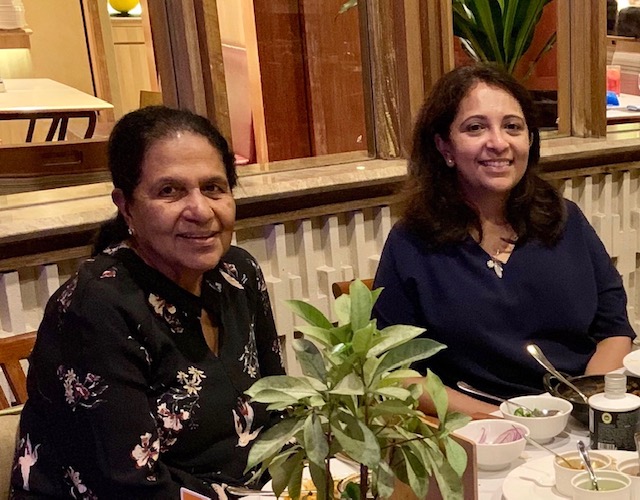
Hetal Shah: “I grew up in Indonesia, having moved there from India when I was 6. My mom raised my brother and me in a relatively relaxed environment by Indian standards. We spoke Gujarati and English mixed in with Indonesian at home and ate Indonesian food for lunch and Indian food for dinner, She did a great job at helping us to assimilate to a new country and also kept us connected to some traditional Asian/Indian values in the family, such as respecting our elders and never questioning anything they say. When I came to the United States after high school, I adapted to American culture, but my mom continued to instill our Indian culture into our daily lives. I didn’t realize until I had kids, that I grew up with many contrasting values. Now with my own kids, I automatically follow many of her examples when I try to keep my kids connected to their cultural heritage as they grow up here in the US; however, I am more aware of their conflict between being American and their Indian heritage. So, I am trying to find a balance between the Asian values and letting them have more freedom of expression and encouraging their curiosity about what it means growing up somewhat ‘Indian’ in NYC.”
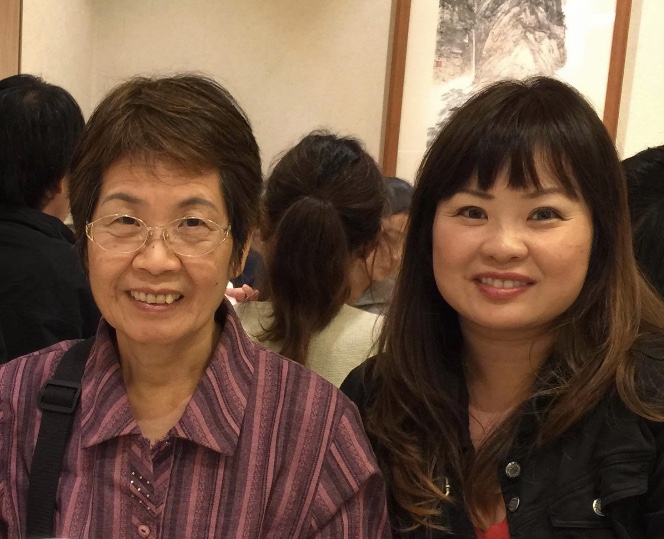
Sandy Liu: “My mom raised me to be respectful of elders — seniors, teachers, adults — without question. That was the Asian culture. We had to be respectful of elders, ALWAYS! They were always right and not to ever be questioned. You listen and obey. I teach my kids differently to question everything, even elders including myself because I believe that everyone is human and not always right. Kids shouldn’t be afraid to ask and learn. That’s also how they learn to be unafraid of anybody.”
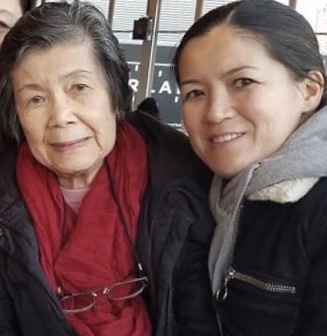
Irene Zak: “I was born in the Philippines, but was raised in New York since I was one year old. My parents spoke to us in Tagalog and English, so my brother and I have been able to understand our native language from the start. I do try to teach our cultural heritage to my son, but we have a tri-cultural family, so I am always careful to have him learn a little bit of all three. But one of the biggest differences in how I’m raising my son is the amount of time I am able to spend with him. Although I always felt loved and taken care of, my mother was a working mom who worked a 9 to 5 job in Manhattan. I would have to wait till she came home before I could ask her a question on my homework or wait till the weekends to have my play dates. She would always make up for lost time with us by having weekends filled with activities to the beach, apple picking or even just baking with me in the kitchen. When she did have vacation, we always did big trips to Florida, the Philippines, and even road trip down the East Coast. We don’t do many big trips, but as a stay at home mom, I am able to see every moment in his life no matter how small. I see him when he gets home from school, and he tells me about his day. I take him to after school activities and even play dates to see best friend. As mothers, we all make sacrifices in different ways, and I can see how much my mother has sacrificed to raise us. How she did it all with a full-time job, I will always be grateful.”

Karen Lin: “One of my earliest memories with my mom is when I was about 5 years old. She was cleaning the bathroom and I was sitting in a chair nearby, crying hysterically. In between her washing and scrubbing, she was trying to go over my multiplication tables with me, while sobbed as I recited them. I just couldn’t get it right. As a child, I was always upset because I wanted to play outside instead of having to learn math or whatever other subject my mom tried to teach me. As I got older, I realized how hard my mom worked at her regular day job AND then had to come home to an even tougher job of raising me and my brother. As an immigrant, she was trying to give us every opportunity possible so that our lives wouldn’t be as hard as hers. When I became a parent, I realized even more how impressive it was that she made so much time to teach me anything. I have to admit that while I always loved my mom, I never learned to appreciate her until I had a child of my own. My mom took one month off of work each time after my daughters were born to cook and care for me. She shopped for groceries, lugged them 1.5 hours on the subway, and spent hours making food and stews to help me recover post birth. She showed me how to properly burp my daughters, how to lull them to sleep, and how to bathe them when they were tiny. She made me take naps and breaks and told me to relax and not stress. Most importantly, my mom showed me that once someone becomes a mother, they make an unspoken commitment to give, give, and then give some more, even when their children are grown and have their own children. My daughters might not learn their multiplication by age 5, but you bet that I will take a page from my mom’s book and give them everything I have, even when they don’t want what I give, and even when they are grown.”
AsAmNews has Asian America in its heart. We’re an all-volunteer effort of dedicated staff and interns. Check out our new Instagram account. Go to our Twitter feed and Facebook page for more content. Please consider interning, joining our staff, or submitting a story.
